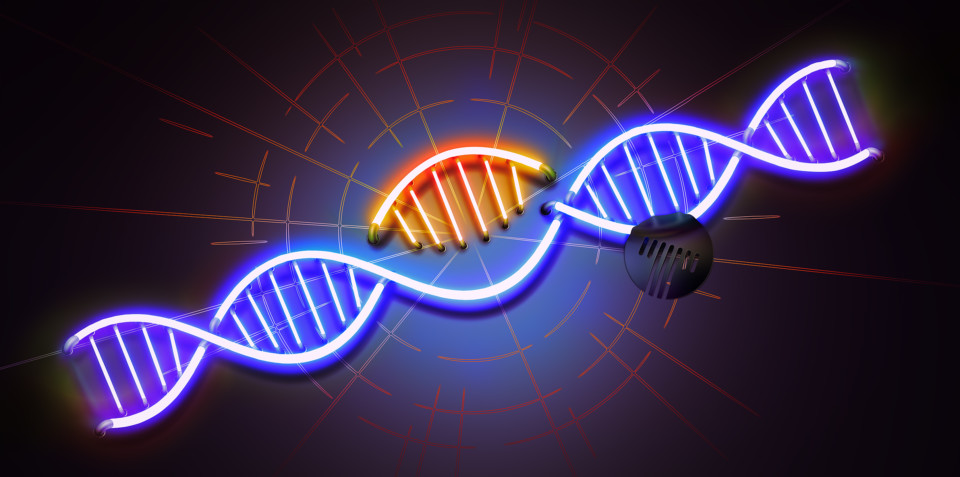CRISPR
CRISPR gives our society the profound power to change the code of life to cure genetic disease and reshape our world.
DNA is the code of life. It encodes the fundamental properties of an organism — how it lives, grows, and reproduces.
For decades, researchers dreamt of a way of changing DNA to open up new possibilities in science.
In 2012, UC Berkeley professor and Innovative Genomics Institute founder Jennifer Doudna, Emmanuelle Charpentier, and their teams achieved the impossible and developed a method of repurposing a bacterial immune system called “CRISPR” to make breaks in DNA at precise locations, using a CRISPR-associated enzyme (the Cas9 protein) like molecular scissors to cut DNA.
As a result of their Nobel Prize winning breakthrough, scientists can now edit the genome of any living organisms including humans by adding new fragments of DNA for the cell to use as a template when it repairs the break in the DNA. In this way, scientists can replace a disease-causing mutation with a healthy sequence or make other modifications to the genome.
Alternatively, scientists can use this method to “knock out” a gene entirely — a technique that is frequently used to study the functions of genes — or to modify portions of the genome that affect how genes are expressed, known as “epigenetic editing.”
Together, these methods give scientists powerful new tools to treat disease, improve agriculture, and study fundamental questions of biology.
Over the past 10 years, the CRISPR “toolbox” has enable a golden era in science, continued to expand, improve, and allow for more efficient editing and delivery with an accelerating number of breakthrough applications across health, agriculture, and climate.
As the era of CRISPR gathers even more pace though, the need to apply to technology responsibly and ensure fair access intensifies.
Through our work with Dr. Doudna and the global gene editing scientific and business community, Thermal continues to be the leading team advising on multi-faceted CRISPR-related communication strategy.
“All of us have a huge responsibility, to consider carefully both the unintended consequences as well as the intended impacts of CRISPR technology.”
Dr. Jennifer Doudna, Nobel Laureate and co-inventor of CRISPR technology
Read about some of the work we are doing with Dr. Doudna here, her IGI team here, our CRISPR clients such as Scribe Therapeutics here, and a selection of 300+ high impact featured tier 1 media placements we have secured specifically on CRISPR technology here.


